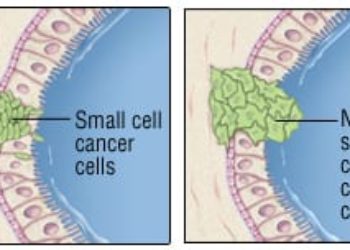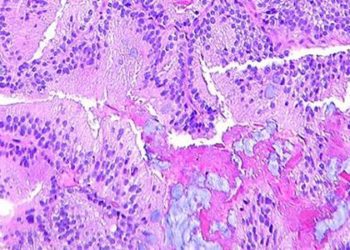Prophylactic platelet transfusions prevent bleeding in hematologic cancers
Image: PD
1. Hematologic cancer patients receiving prophylactic platelet transfusions had fewer bleeding episodes compared to patients who did not receive such prophylaxis.
2. Despite prophylaxis, the risk of bleeding remains high.
Evidence Rating Level: 1 (Excellent)
Study Rundown: This study suggests that prophylactic platelet transfusion is beneficial in patients with thrombocytopenia secondary to hematologic disease. While prophylaxis achieved a marginal reduction in bleeding incidence (8.4% adjusted difference in proportions), platelet transfusion is not without its risks, which include hemolytic transfusion reactions, transfusion related acute lung injury, and circulatory overload. In interpreting the study results, one should bear in mind that the primary end point is the percentage of patients who experienced WHO grade 2, 3 or 4 bleeding. The study was not designed to evaluate net clinical benefit or survival. Indeed, such an evaluation requires a large scale clinical trial and a much longer follow up period to determine how patients fare years into the differential interventions.
Click to read the study, published today in NEJM
In-Depth [randomized noninferiority study]: The study assigned 600 patients randomly to receive prophylaxis when platelet counts dropped below 10×109, or no prophylaxis in a 1:1 ratio. The study tracked the percentage of patients who had experienced WHO grade 2, 3, or 4 bleeding up to 30 days after randomization as its primary end point.
WHO grade 2, 3, or 4 bleeding occurred in 50% of patients in the no-prophylaxis group, compared to 43% in the prophylaxis group. The adjusted difference in proportions was 8.4% (90% confidence interval, 1.7 to 15.2, p=0.06 for noninferiority). A post hoc superiority analysis showed that no-prophylaxis was inferior to prophylaxis (P=0.04). Additionally, the no-prophylaxis group had more days with WHO grade 2, 3, or 4 bleeding (rate ratio, 1.52, P=0.004), with shorter time to first bleeding episode (P=0.02).
By Xiaozhou Liu and Mitalee Patil
More from this author: Azithromycin is not associated with increased cardiovascular death in low-risk groups, Health education module reduces parasitic infections, New chemotherapy precludes the need for radiotherapy in primary mediastinal B-cell lymphoma, Nonemergent perc. coronary intervention safe without on-site cardiac surgery services, Omalizumab relieves symptoms in difficult-to-treat chronic idiopathic urticaria, New device reduces acid exposure in gastroesophageal reflux disease,
© 2013 2minutemedicine.com. All rights reserved. No works may be reproduced without written consent from 2minutemedicine.com. Disclaimer: We present factual information directly from peer reviewed medical journals. No post should be construed as medical advice and is not intended as such by the authors or by 2minutemedicine.com. PLEASE SEE A HEALTHCARE PROVIDER IN YOUR AREA IF YOU SEEK MEDICAL ADVICE OF ANY SORT. Content is produced in accordance with fair use copyrights solely and strictly for the purpose of teaching, news and criticism. No benefit, monetary or otherwise, is realized by any participants or the owner of this domain.









